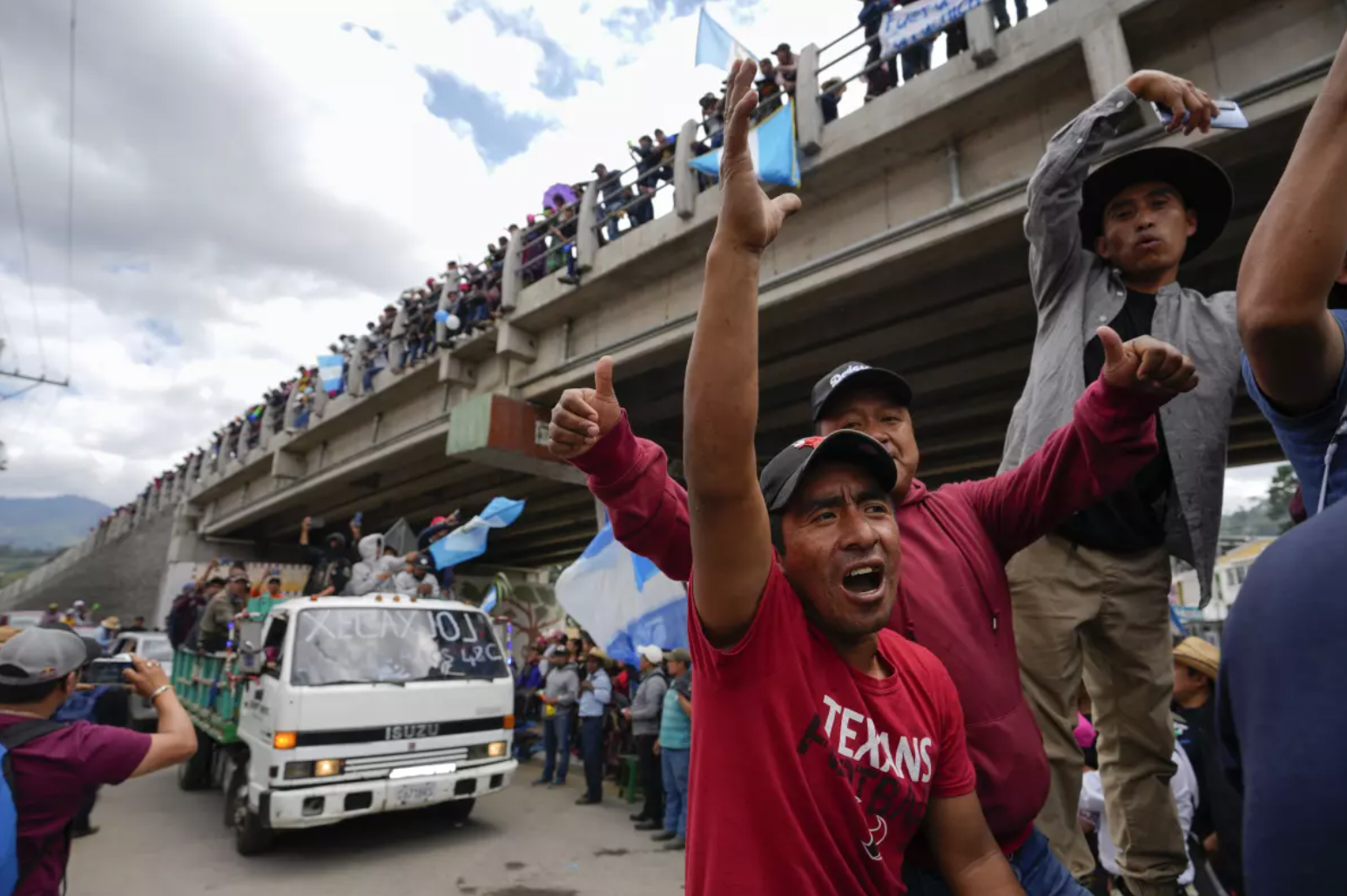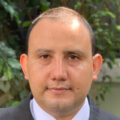Guatemala is going through a situation of high tension as it has not been registered for several decades. It is a situation created by a traditional political class that stretched the rope as far as they could. Now, it appears that it is about to burst. There were numerous events that led to what is happening in the country today. To begin with, through arbitrary provisions disguised as legal, we have not had a renewal of courts in almost four years. Superfluous arguments, such as the fact that the profiles of those who would integrate the justice system have not been sufficiently discussed in the Congress of the Republic, led to the consolidation of a traditional political class accustomed, since the democratic transition in 1985, to act through bribery, overvaluations, and transgressions. Yet, they occupy decisive spaces in the three branches of government, which some have called the “pact of the corrupt”.
To this was added the Attorney General’s Office (MP) which has acted through a policy of persecution of any voice that disagrees with this alliance. This has caused a significant number of people, including journalists, communicators, judges, prosecutors, and human rights defenders, to find themselves today in exile or deprived of their freedom. The reason seems to be a kind of improved pendulum of what the International Commission Against Impunity (CICIG) did, until 2019, at that time a persecution with substantive issues but without many forms toward some actors of the status quo. The result was a high degree of social polarization, with class sentiments very much raised between what many primarily understand as left and right. In fact, without a wise analysis, but which are used to justify actions and speeches of one side or the other.
We must also remember how we arrived at the beginning of 2023. At that time, there was a high-level questioning of the electoral authorities, specifically to the Supreme Electoral Tribunal (TSE)’s plenary of magistrates due to a series of very particular interpretations of the legal-normative order related to the electoral field. This process implied the non-registration of candidates. Such was the case of the Movimiento para la Liberación de los Pueblos (MLP), for allegedly not having its vice-presidential candidate, Jordán Rodas, with the corresponding severance payment for having been Human Rights Ombudsman (PDH) and who had from that position a relationship not very close to the traditional political class of the country.
There is also the case of the Prosperidad Ciudadana Party (PC), which nobody had on the radar, until it appeared at the top of the first serious survey of the country, probably because of its proper management of social networks and the closeness it showed with the people. Although his presidential candidate was not necessarily very different in ideological terms, he was not a character that was easy to control for this political class that we have been commenting on. As a result, a complaint arose that his general assembly had not been carried out in law, and therefore all his other assemblies were annulled. In total, 1,351 candidates could not participate in different elected positions and the candidate Carlos Pineda, who was leading the polls, left the electoral process. It is noteworthy that it was Manuel Baldizón, a former presidential candidate, convicted in the U.S. for money laundering and who will be released in 2022, who was the citizen who filed the complaint.
There are other cases, such as not allowing Roberto Arzú, son of former President Álvaro Arzú (QEPD), who was accused of early campaigning, to participate. Something that practically all the candidates did last year, disguising it as affiliation campaigns and twisting the Electoral and Political Parties Law (Decree 1-85), were adding up to what was anticipated as points of conflict and difficulties to face the electoral process that took place as of January 2023 with the call for elections.
Despite everything, 60.08% of Guatemalans decided to go to vote on June 25, with several candidates out of options within the political menu presented to us to choose from. Speeches of the traditional political class, quite conservative, protected by a false Christianity (true Christians do not steal), were presented as options to maintain a conservative line in the country, with no more ideological support than the political marketing of a figure, not even of a political project.
The result was that in the presidential elections, the first place was obtained by the null vote, with 17.38%, which evidences the rejection of most of the traditional politicians in the country. Then, Sandra Torres (15.86%), of the Unidad Nacional de la Esperanza (UNE), a party that in its origins was social democratic and today is just another catch-all party, but with the largest party structure at the national level. And Bernardo Arévalo (11.77%), of Movimiento Semilla, a progressive center-left party, which was not on the radar of analysts and politicians, went to the ballot.
From that moment on, the electoral results began to be questioned. Bernardo Arévalo was an uncomfortable character since he belongs to a small and new party, which has tried in some way to be different from the traditional politicians; in some points, he has succeeded, in others not so much, but obviously, he is not part of the axis of traditional political parties.
In the second round, the victory of Arevalo (58.01%) over Torres (37.24%) was confirmed. As a result, there was a series of actions by the MP trying to discredit the electoral process, which had its point of no return on October 1 when they withdrew from the TSE the minutes containing the work of the temporary electoral bodies. These bodies are made up of respectable citizens and volunteers from the different departments and municipalities of the country, in a mechanism in which the votes are counted publicly in front of the political parties’ prosecutors.
What was mentioned is the existence of a plan by the current government authorities, in coordination with the other two branches of the state and a Constitutional Court quite similar, to annul the electoral process and repeat it with candidates that generate comfort to the traditional political class. Canceling the Movimiento Semilla due to an investigation on the issue of false signatures in its affiliates to become a party (ironically denounced by Bernardo Arévalo himself), going through an interim election of one of its characters to be responsible for directing the destinies of the country for a while as provisional president.
This led to a series of blockades starting on October 2, originally initiated by the indigenous organization 48 Cantones de Totonicapán to demand the dismissal of the current Attorney General, Consuelo Porras, and the Special Prosecutor’s Office against Impunity (FECI), Rafael Curruchiche. As the days have passed, different actors and sectors have joined in throughout the country. More than 190 blockades have been counted. It should be noted that there are no known cases of repression by the security forces.
However, the absence of President Alejandro Giammattei’s leadership to try to find immediate mechanisms to resolve the conflict is evident. It took about eight days for him to appear in a message on national TV, where he spoke of what would inevitably happen, some looting committed by infiltrators, the abuse of the blockades to limit the constitutional right of free locomotion, the shortage of products and their imminent increase in price, among others.
The central government requested the participation of the Organization of American States (OAS) to try to reach an agreement between the parties five days later. Despite the high quality of the people sent, what is observed is that there is no clarity on who to negotiate with. 48 Cantones does not lead the blockades at the national level, as many arise spontaneously and with popular support. On the other hand, the initial request for the resignation of the Attorney General has not even been mentioned by President Giammattei, and she herself has said that she will not leave office.
As mentioned by the Guatemalan internationalist Roberto Wagner, each group is in its own trench and does not want to leave it, with no willingness to negotiate. To this is added a president-elect, Bernardo Arévalo, who shows no signs of calling for immediate dialogue and leading a much more orderly transition, considering that the blockades ultimately generate an affectation of the country, and show the primitive way of doing politics in which Guatemala has fallen, where the rights of some are claimed to sacrifice those of others.
*Translated by Janaína Ruviaro da Silva from the original in Spanish.













